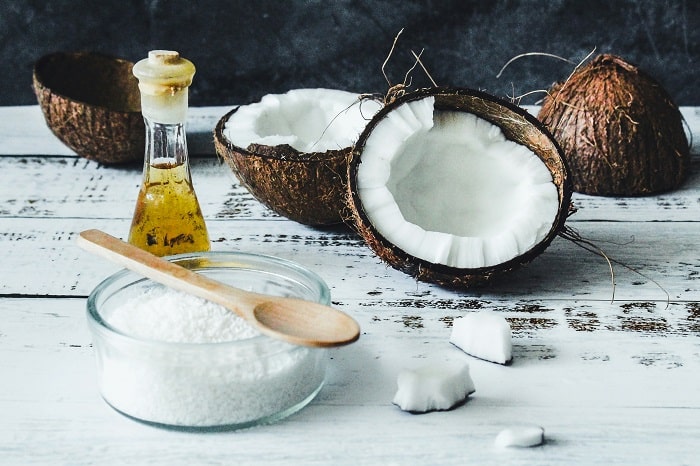In a world where more and more people are shifting towards natural and holistic approaches for health and beauty, understanding the science behind widely used natural ingredients can offer valuable insights. Products like coconut oil, honey, and aloe vera have been used for centuries across cultures due to their multiple health and beauty benefits. Yet, what makes them truly special is not just their historical significance but the science that supports their efficacy.
These natural substances are much more than just remedies passed down through generations. Each of them contains a range of active compounds that have been studied and proven to deliver health and beauty advantages. Whether you’re looking to enhance your skincare routine, improve your overall well-being, or incorporate natural products into your daily life, these ingredients can be powerful allies. In this article, we’ll explore the specific properties of coconut oil, honey, and aloe vera, looking at both the scientific research and practical uses of each. Let’s dive in!
Coconut Oil: A Versatile Natural Powerhouse
Coconut oil has become one of the most popular natural ingredients in both the health and beauty industries. Derived from the meat of mature coconuts, this oil is packed with saturated fats, particularly medium-chain triglycerides (MCTs), that offer a range of health benefits. Over the past few years, scientific research has shed light on how coconut oil, once criticized for its fat content, can actually be a beneficial part of a balanced diet and a powerful tool in maintaining skin and hair health.
The Science of Coconut Oil
One of the most fascinating aspects of coconut oil is how its fats are metabolized. Unlike long-chain fatty acids found in other types of oils, the medium-chain triglycerides (MCTs) in coconut oil are absorbed more quickly by the body. This makes coconut oil a fast source of energy, which is why many athletes and individuals following ketogenic diets rely on it for a quick energy boost. Moreover, coconut oil is high in lauric acid, a fatty acid that has been shown to have antibacterial, antiviral, and antifungal properties. This makes coconut oil not only a nutritional powerhouse but also a natural protector against harmful pathogens.
Scientific Insights:
- Medium-Chain Triglycerides (MCTs): Unlike other fats, MCTs are metabolized directly by the liver, providing an instant source of energy. Research suggests that MCTs can improve brain function, making them beneficial for cognitive health.
- Lauric Acid: About 50% of the fats in coconut oil come from lauric acid, which has been shown to effectively kill harmful bacteria, viruses, and fungi. This makes coconut oil a natural antimicrobial agent.
Health Benefits of Coconut Oil
Coconut oil has garnered attention not just for its health properties but also for its potential to support weight management and improve cardiovascular health. Studies have indicated that the MCTs in coconut oil may help increase metabolic rate, leading to more efficient fat burning, which could assist with weight loss. Additionally, coconut oil can improve levels of HDL cholesterol, often referred to as “good” cholesterol, which plays a crucial role in maintaining heart health.
Beyond weight management, coconut oil has been shown to improve digestion by aiding the absorption of fat-soluble vitamins, minerals, and amino acids. Some research also suggests that it may improve gut health by combating harmful bacteria while supporting the growth of beneficial bacteria in the digestive system.
Beauty and Skincare Uses of Coconut Oil
The beauty industry has embraced coconut oil for its natural moisturizing, anti-inflammatory, and antimicrobial properties. As a skincare ingredient, coconut oil acts as a highly effective natural moisturizer that can penetrate deep into the skin, providing long-lasting hydration without clogging pores. It’s a common ingredient in lotions, lip balms, and even natural deodorants.
For hair care, coconut oil is a go-to treatment for dry, damaged hair, helping to reduce protein loss and improve hair strength and shine. Many people also use it as a natural makeup remover, as it can dissolve even waterproof products while leaving the skin soft and moisturized.
Beauty Uses:
- Moisturizer: Coconut oil can deeply hydrate the skin, improving elasticity and reducing dryness, making it particularly beneficial for those with dry or sensitive skin.
- Hair Conditioner: Apply coconut oil to the ends of your hair to nourish and repair split ends, or use it as a deep conditioning mask to restore shine and strength.
Honey: Nature’s Sweet Elixir
Honey is not just a sweet treat; it’s also a potent natural remedy that has been used for thousands of years. Produced by bees from the nectar of flowers, honey is packed with vitamins, minerals, antioxidants, and enzymes that make it an incredible ingredient for both health and beauty purposes. The composition of honey, primarily consisting of fructose and glucose, makes it a natural energy source, while its range of bioactive compounds provides numerous health benefits.
The Science of Honey
One of the standout properties of honey is its rich antioxidant content. Antioxidants are compounds that neutralize free radicals, unstable molecules that can damage cells and contribute to aging and chronic diseases. Honey, particularly raw honey, contains flavonoids and phenolic acids, powerful antioxidants that protect cells from oxidative stress. Additionally, honey has natural antimicrobial properties that make it useful for wound healing and fighting infections.
Scientific Insights:
- Antioxidants: Honey is loaded with antioxidants, including flavonoids, which have been shown to reduce the risk of heart disease and protect cells from damage.
- Antimicrobial Properties: The enzymes in honey produce hydrogen peroxide, giving it a mild antiseptic quality. This makes it effective in treating minor cuts, scrapes, and burns by preventing infection and speeding up the healing process.
Health Benefits of Honey
Honey’s natural ability to soothe and heal makes it a valuable tool in medicine. One of the most well-known uses of honey is as a natural remedy for coughs and sore throats. Studies have shown that honey can be more effective than some over-the-counter medications for reducing cough symptoms, particularly in children. Its soothing properties also make it a popular remedy for digestive issues, as honey acts as a prebiotic, supporting the growth of healthy bacteria in the gut.
Moreover, honey’s antimicrobial and anti-inflammatory properties extend its use to wound care. When applied to cuts, scrapes, or burns, honey can help disinfect the area and promote faster healing, making it a natural and effective treatment for minor injuries.
Skincare and Beauty Uses of Honey
In skincare, honey is prized for its hydrating and soothing abilities. It’s often used in face masks and cleansers due to its ability to retain moisture and improve skin texture. Honey is also a natural humectant, meaning it draws moisture from the air into the skin, making it an excellent choice for dry or dehydrated skin.
Honey is frequently used as a gentle exfoliant when combined with sugar or oats, sloughing off dead skin cells to reveal smoother, brighter skin. In hair care, honey can be added to conditioners or used as a standalone treatment to boost shine and softness.
Beauty Uses:
- Face Mask: Apply raw honey to your face for a simple, hydrating mask that will leave your skin soft and glowing.
- Exfoliant: Mix honey with sugar or ground oats for a natural exfoliating scrub that nourishes as it exfoliates.
Aloe Vera: The Soothing Succulent
Aloe vera has been used for centuries for its soothing, healing, and hydrating properties. This succulent plant is rich in vitamins, minerals, enzymes, and amino acids that make it a versatile natural ingredient for both health and beauty purposes. Aloe vera is perhaps most famous for its use in treating sunburns, but its benefits go far beyond that.
The Science of Aloe Vera
Aloe vera contains a gel-like substance that is packed with beneficial compounds. Among these are vitamins A, C, and E, all of which are potent antioxidants that help protect the skin from oxidative damage. Aloe vera also contains important minerals like zinc and magnesium, which are essential for maintaining skin health. One of the key compounds in aloe vera is polysaccharides, which have been shown to help retain moisture in the skin, providing soothing hydration and promoting faster healing of wounds and burns.
Scientific Insights:
- Vitamins and Minerals: Aloe vera is a rich source of antioxidants, particularly vitamins A, C, and E, which help protect skin cells from damage and support healthy skin regeneration.
- Polysaccharides: These are responsible for the gel’s hydrating properties, helping the skin retain moisture and providing a soothing effect on irritated or inflamed skin.
Health Benefits of Aloe Vera
Aloe vera is well-known for its ability to soothe and heal skin, but it also offers benefits for digestive health. Aloe vera juice is often used to support digestion, as it can soothe the digestive tract and reduce inflammation in the gut. Studies have shown that aloe vera can help alleviate symptoms of irritable bowel syndrome (IBS) and other inflammatory digestive disorders.
In addition to its digestive benefits, aloe vera’s anti-inflammatory properties make it a natural remedy for reducing the symptoms of conditions like arthritis. Its ability to reduce inflammation, both internally and externally, makes it a versatile ingredient in both health and wellness.
Skincare and Beauty Uses of Aloe Vera
Aloe vera is a popular ingredient in skincare products due to its ability to soothe and hydrate the skin. It is especially useful for treating sunburns and other forms of skin irritation. The cooling sensation of aloe vera gel can immediately reduce redness and discomfort, while its polysaccharides work to speed up the healing process.
Aloe vera is also an excellent moisturizer for oily or acne-prone skin, as it provides hydration without leaving a greasy residue. It is frequently used in lotions, creams, and serums designed for sensitive or inflamed skin, and can be found in many after-sun care products.
Beauty Uses:
- Sunburn Relief: Aloe vera gel provides instant relief for sunburned skin, helping to cool the skin and reduce inflammation.
- Moisturizer: Use aloe vera as a lightweight, non-greasy moisturizer for all skin types, particularly for oily or acne-prone skin.
FAQs: Natural Ingredients Benefits
What are the primary benefits of coconut oil?
Coconut oil offers multiple health benefits due to its unique composition of medium-chain triglycerides (MCTs) and lauric acid. It supports cardiovascular health, aids in weight management, and serves as a deeply hydrating moisturizer for skin and hair.
How can honey be used for health and beauty?
Honey is not only a natural sweetener but also a potent remedy for coughs, sore throats, and digestive issues. In beauty, honey is prized for its ability to hydrate and exfoliate the skin while promoting wound healing with its antimicrobial properties.
What are the key benefits of aloe vera for skin and health?
Aloe vera soothes sunburns, hydrates the skin, and supports digestive health. Its anti-inflammatory properties make it beneficial for treating irritated skin and reducing inflammation in the gut.
Final Thoughts: Embrace the Power of Natural Ingredients
Natural ingredients like coconut oil, honey, and aloe vera are not just passing trends—they are backed by science and offer tangible health and beauty benefits. From their antioxidant-rich compositions to their ability to hydrate, soothe, and heal, these ingredients are versatile tools that can be incorporated into daily routines for improved wellness. Whether you’re looking to boost your skincare, enhance your diet, or explore natural remedies, coconut oil, honey, and aloe vera can be trusted to deliver results in a natural, holistic way.
References:
Scientific Research on Coconut Oil Health Benefits
- Link: National Center for Biotechnology Information (NCBI) on coconut oil’s health effects (https://www.ncbi.nlm.nih.gov
Antioxidant Properties of Honey
-
- Link: PubMed articles on honey’s antioxidant and antimicrobial properties (https://pubmed.ncbi.nlm.nih.gov)
Aloe Vera and Skin Health
- Link: American Academy of Dermatology (AAD) on aloe vera benefits (https://www.aad.org)
Have you tried incorporating coconut oil, honey, or aloe vera into your beauty or health routine? Share your experiences in the comments below! Let’s learn and inspire each other with our favorite natural ingredients.

